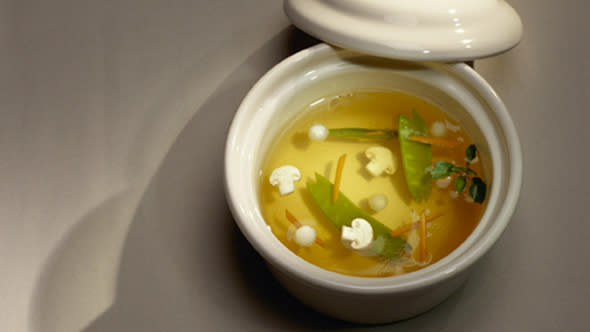Could a Japanese diet lengthen your life?

Pic: Getty
When it comes to life longevity, a healthy diet is definitely a plus, and statistics suggest that the Japanese have found the key. According to the UN, the country has the highest proportion of centenarians in the world, as well as the lowest obesity rate. So could a Japanese diet help you to live longer?
A Japanese diet doesn't have to mean sushi and sashimi, and you don't even necessarily need to cook Japanese dishes to benefit from their healthy diet. Portion sizes, low-calorie foods and a healthy balance all play their part.
Related Searches
What to eat
Rice
The basis of almost all Japanese cooking, this low-fat, complex carbohydrate fills you up without filling you full of calories, and leaving you less likely to reach for the sugar and salt-packed treats we Westerners so often crave.
Vegetables
Veggies are a staple of the Japanese home-cooked diet, and while it might be tricky to find purple sweet potatoes or 'goya' (a type of bitter cucumber indigenous to Okinawa), there are plenty of readily available alternatives. Peppers, green beans, onions, bamboo shoots, shiitake mushrooms and seaweed aren't hard to come by. The key is in the cooking. The Japanese home cook most commonly simmers mixed veg in a seasoned broth, lightly steams, or stir fries, retaining the maximum amount of nutrients.
Fish
It is estimated that the Japanese consume 10 per cent of the world's fish, and the fresh tuna, mackerel, sardines and herring that are commonly found in Japanese cooking are all great sources of omega-3 fatty acids, thought to benefit heart health and ease depression. But what may tip the longevity balance in favour of a fish-rich diet is that there is less of the unhealthier red meat, which contains more saturated fat, in the diet.
Soy
Alongside regular portions of fish, soy acts as a protein alternative in Japan. Containing little or no saturated fat, options such as tofu or edamame beans give you the benefit of protein without the harmful elements of red meat, and will help to fill you up too. Miso soup is a popular soy-based meal in Japan.
%VIRTUAL-AFCSponserAds%
Portion control
Lastly, it is worth adopting the Japanese tradition of presenting lots of small dishes to share at dinner. Serve up a full, single plateful at dinnertime, and research shows that you'll eat it all. But small servings of an array of different flavours, textures and ingredients will help you to slow down, enjoy your food, and give your brain time to realise when you're full.
Will you be trying the Japanese style of eating to improve your health? Leave your comments below...



